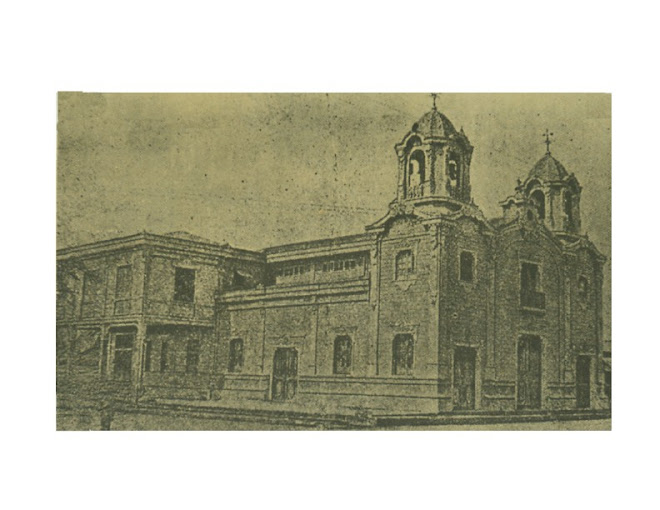THE DESCRIPTION OF
THE INDIVIDUAL FUNCTIONS OF
THE OFFICERS OF THE PARISH COUNCIL
Introductory Notes
Always, the source of conflict between and among the council members in the parish council is the misperception of the functions or role of the individual officers in the leadership body. This is caused when each assumes that what ones is exercising is her or his inherent to the office she/he is elected to.
When left unattended, unresolved and un-clarified, this, misperception builds up internal conflict because it fosters suspicion and mistrust among council members in the council. This, in turn, will affect relationship and influence attitude of people in the whole parish and which ultimately lead to the formations of interest groups that later on will divide the loyalties and sympathies of the general membership.
This paper attempts to list down the individual functions of the officers of the parish council based on the 1977 Canons and Constitution of the IFI, The Robert’s Rules of Order and on our contemporary experience as a church.
Clarificatory Notes
What are listed here are descriptions of the functions of the individual members of the council. By that we mean two things here. For one, they describe the particular function of the particular officer when the council meets or in session. This is in particular refers to the office of the chairman. But after the session, the priest assumes another role as an executive officer of the parish being the parish priest. For two, the descriptions appertaining to the other officers refer to their ascribed tasks as particularly in reference to the daily operation of the parish as being led by a parish priest. They carry out these functions individually as tasks assigned to them by the council collectively. Meaning, these functions assigned to them in the council but have to be undertaken even outside the council in meeting.
This fact therefore pushes us to understand the ambivalent dynamics of the council. Firstly, a council-meaning the ten persons comprising it-is the council when it is in session or when it is meeting. Here, the ten persons counsel each other in the name of, or in behalf of, and for the well- being of, the wider congregation that they represent. The ten persons sitting as council do not represent themselves; they represent the whole congregation of the parish; or theologically speaking, they represent God; people in the particular community. Secondly, a council is not a council when it is not in session or when it is not meeting. The council becomes represented by its executive officer, the parish priest, to the congregation. Here, the parish priest embodies the decision and policies of the council. The other members of the council exercise their task assigned tasks as members to that council. Here these members actualize the council through their tasks as now being led by the executive officer, the parish priest.
This brings us therefore to understand the more complex office of the minister or parish priest. By virtue of his ordination, the minister becomes a priest, a prophet and a pastor of the local community of faith. His work as the administrator of the parish is only one of the multifaceted work of being pastor in the parish. Hence, it cannot be said, and this is the highly anomalous for the parish, that the parish priest has to limit his function as being the chairperson of the council or as being the executive officer in the parish. As an ordained minister of God, he has other full function definitive of his being set apart so that he can become fully effective as the channel of God’s life-giving work in the community or in the world.
With this in mind, the following descriptions are herein enumerated with the purpose to enlighten council members of the individuality of their functions so that from them a small community of leaders, a council for that matter (for this is being what a council means) may arise from them whose singular function is to serve and minister the faith community without counting the cost and without vested interest or string attached.
The Function of the Chairperson:
1. To determine and prepare the agenda of all meetings of the council.
2. To call on and preside over all meetings of the council.
3. To report to the council church development in local, diocesan and national levels.
4. To present to the council his proposed program of action and make recommendations for approval.
5. To inform the council about national or diocesan program thrust and properties, and call on the body to support, adopt and implement the same in parish level.
6. To serve as ex-officio member of the committees created by the council.
7. To discharge the following duties at all meetings of the council:
a. To open the meeting at the appointed time by taking the chair and calling the meeting to order having ascertained that a quorum is present.
b. To announce in proper sequence the business that comes before the council or becomes in order in accordance with the prescribed order of business or agenda of the day.
c. To recognize member who are entitled to the floor.
d. To state and to put to vote all questions that legitimately comes before the council.
e. To protect the meeting from obviously frivolous or dilatory motions by refusing to recognize them.
f. To enforce the rules relating to debate and those relating to order and decorum within the meeting.
g. To expedite business in every way compatible with the right of the members.
h. To decide all questions of order.
i. To respond to inquiries of members on anything that has bearing on the business of the meeting.
j. To authenticate by his signature all acts, orders and proceedings of the council.
k. To declare the meeting adjourned when the council so votes, or at the time prescribed in the program, or at any time in the event of a sudden emergency affecting the safety of those present.
The Function of the Vice-chairperson:
1. To act as chairman in the case of the latter’s absence or temporary incapacitation when otherwise delegated to.
2. To serve as the over-all coordinator of all committees created by the council (to see to it that each committee functions accordingly and carries out its programs effectively), and to report the same to the council and/or the parish priest.
3. To perform such other duties as directed by the council or as delegated by the chairman.
The Function of the Secretary:
1. To keep the record of all the proceedings of the organization, and to keep on file all committee reports.
2. To keep the official membership roll and to call the roll where it is required.
3. To make the minutes and records available to members upon request, and to furnish the diocesan and national offices copies of the same.
4. To notify officers, committee members, and delegates of their election or appointment, to furnish committees with whatever documents are required for the performance of their duties, and to have on hand at each meeting a list of all existing committees and their members.
5. To sign all certified copies on acts of the council, unless otherwise specified in the by-laws.
6. To maintain record books in which by-laws, special rules of order, standing rules, and minutes are entered, with any amendments to these documents properly recorded, and to have the current record books on hand at every meeting.
7. To send out to the membership notice of each meeting.
8. To act as historian of the parish by keeping records or accounts of all historic activities and occasions.
9. To consult with the chairman in the preparation of the order of business or agenda of the day in all meetings.
10. To perform such other functions as may be assigned to him by the council.
The Function of the Treasurer:
1. To act as the custodian of funds of the parish and to see to it that the funds are properly safeguarded and accounted for.
2. To act as one of the two signatories in all banking transactions of the parish.
3. To maintain book of accounts in accordance with the accepted procedure of accounting.
4. To deposit all funds, whether general. Trust or permanent, as well as securities, received by the parish council in the banking institution approved by the council.
5. To keep book of accounts of funds showing date and source, conditions governing use of principal and interest, to whom reports shall be sent and the manner of investment.
6. To submit and publish a monthly audited financial statement.
7. To disburse funds on properly approved vouchers and in accordance with the actions taken by the council.
8. To prepare for the remittance of % due to the diocese and national church at the end of every month.
9. To provide the Parish Priest annual financial statement to be incorporated in the latter’s annual report to the bishop.
10. To coordinate and cooperate with the Committee on Business and Finance in the generation, receipts and investment of funds of the church.
11. To act as ex-officio member of the Committee on Business and Finance and the Committee on Programs and Projects.
12. To be bonded in a reputable bonding firm in the amount approximating his responsibility.
13. To perform such other duties as may be assigned to him by the council.
The Function of Auditor(s):
1. To examine the books and accounts kept by the treasurer at any time and certify as to the correctness of the financial reports submitted and published.
2. To perform the necessary audit and inventory of properties, furniture and fixtures of the parish.
3. To act as ex-officio member(s) of the Committee on Business and Finance.
4. To exercise such other duties as may be assigned to them by the council.
NOTES:
1. The functions of the chairman as described above should be delineated from the over-all function, tasks, duties, responsibilities and prerogatives of the parish priest inherent to his office of ministry as an ordained minister of the church.
2. Parochial records of baptisms, confirmation, marriages, and death, and similarly, all records, documents, and others, which are to be kept in the parish office, are under the direct responsibility and custody of the parish priest. The same also applies for the keeping of the parish seal.
Written by Atty. Jerry Barraquias
Member, IFI-Legal Panel
Subscribe to:
Post Comments (Atom)





No comments:
Post a Comment